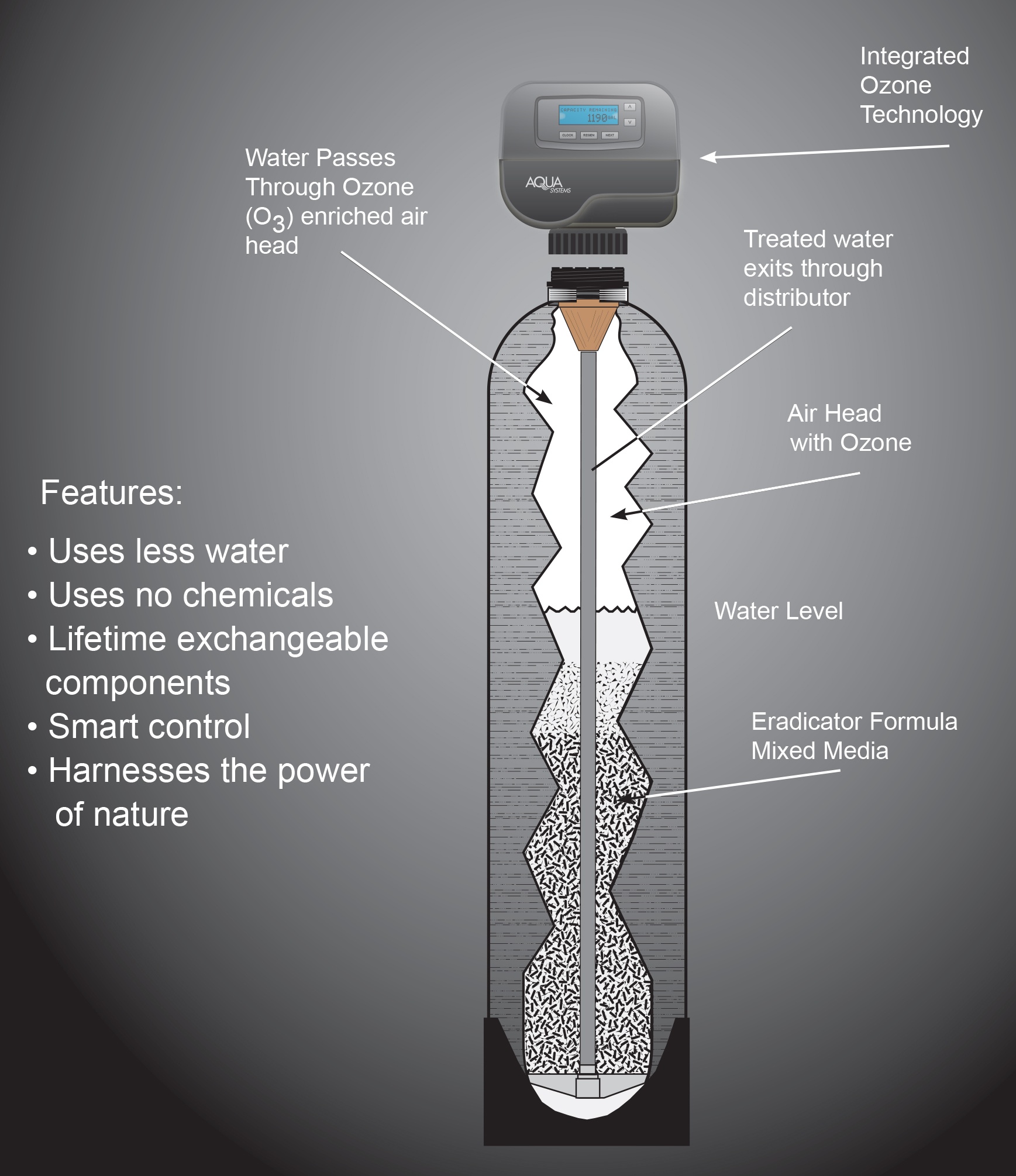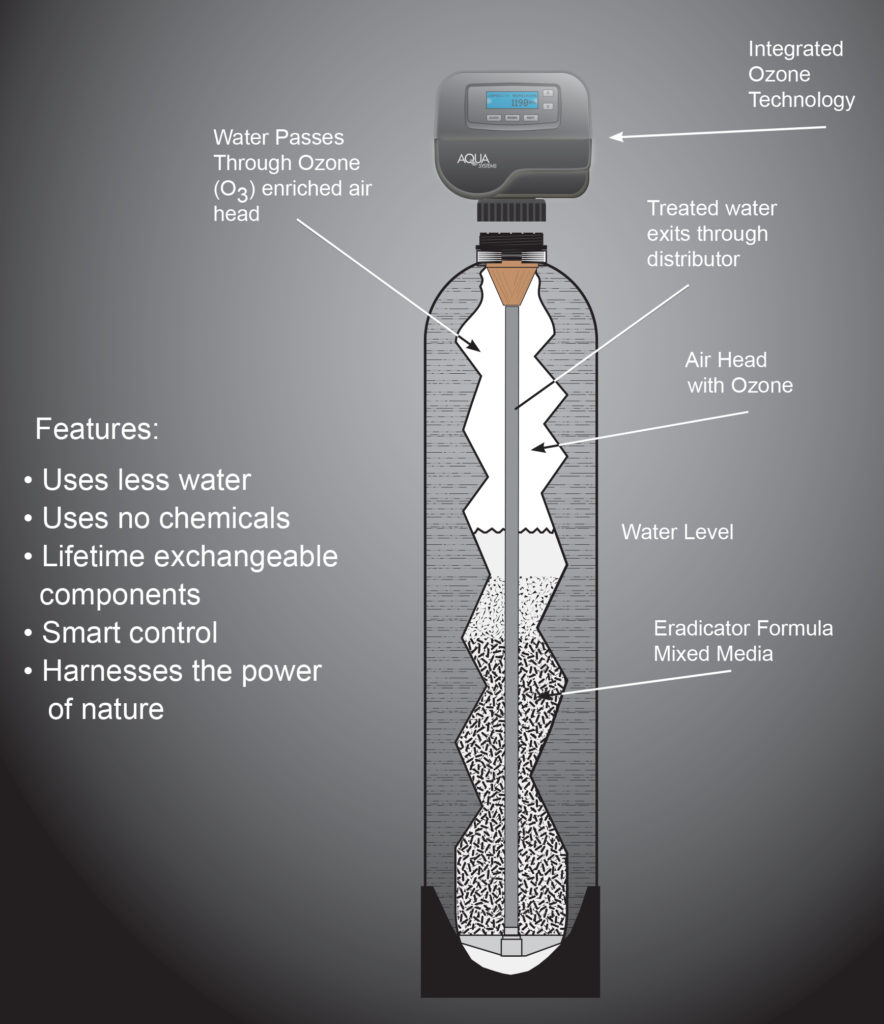Rotten Egg Smell in Your Water: Causes and Solutions
A sulfur smell in your water is an issue for some homes in the New England region, especially if you have a private well or bedrock well. If your water smells like rotten eggs, you’re likely dealing with hydrogen sulfide gas (H₂S).
Unfortunately, this common contaminant can make your water unpleasant to drink and use for showering, cleaning, and cooking. Your laundry might start to smell, and you might even experience signs of sulfur bacteria in your water.
If you’re tired of living with sulfur odors, H2O Care can help. We offer effective water filtration systems to address rotten egg smell and other taste and odor issues. Book a water analysis, and our experts will help you decide on the best water treatment option!
Call today at (800) 539-1100!

Causes of Sulfur Odor in Water
Hydrogen sulfide is a colorless gas known for its distinctive rotten egg smell. Typically, it forms when sulfur-reducing bacteria break down small amounts of sulfur in water. This releases hydrogen sulfide gas as a byproduct.
The bacteria often feed on sulfur from decaying organic matter in environments with low oxygen. They can live in wells and plumbing systems.
Hydrogen sulfide can reveal itself in other ways, too. In some cases, the odor may originate from your water heater. Many water heaters contain a magnesium anode rod designed to prevent corrosion. However, this rod can react with sulfate in the water, producing hydrogen sulfide gas that causes a bad smell.
Hydrogen sulfide can also exist naturally in groundwater. Underground deposits of organic material, such as decaying plant matter, break down over time. This decomposition, especially in oxygen-poor environments, produces hydrogen sulfide gas.
Wells drilled in areas with shale, sandstone, coal, or peat deposits may contain hydrogen sulfide, as well. The gas can also enter surface water through springs.
Potential Concerns: Does Hydrogen Sulfide Gas in Water Pose a Health Risk?
While low levels of hydrogen sulfide in water are generally not harmful, this contaminant can still cause several issues:
- Taste and Odor: Most notably, hydrogen sulfide adds an unpleasant taste and smell to your water. This makes it unpalatable for drinking, and may even affect the flavor of homemade food and beverages. Clean laundry can also pick up a rotten egg smell.
- Corrosion: At high concentrations, hydrogen sulfide can corrode metal pipes and fixtures, leading to leaks and costly repairs. It can also cause the leaching of metals from plumbing systems into water.
- Staining: This gas can cause chemical reactions that result in black or gray stains on silverware, plumbing fixtures, and laundry.
- Clogs: Sulfur-reducing bacteria can produce a slimy film inside pipes, fixtures, and your toilet tank. This can further contribute to foul odors and cause clogs.
In rare instances, the presence of hydrogen sulfide may indicate contamination from sewage or other pollutants. Therefore, it’s essential to test your water to determine the exact cause and concentration of the gas.
Hydrogen Sulfide in Water vs. Air
It’s important to note that hydrogen sulfide gas is toxic when breathed in. Buildup of hydrogen sulfide in confined areas can quickly cause adverse health effects and even death. For more on this, visit this link from the Occupational Safety and Health Administration (OSHA).
If hydrogen sulfide concentrations in water are unusually high (well above typical environmental levels), there could be a risk of inhaling the gas as it’s released from water.
Treatment Options for Rotten Egg Odor
If you’re wondering how to get rid of the sulfur smell in your water, you first need to identify the source with a water test. Then, you can choose the best treatment option. Some methods for removing hydrogen sulfide gas include:
- Activated Carbon Filters: Activated carbon filters adsorb hydrogen sulfide gas. They’re effective for low concentrations (up to 0.3 ppm).
- Oxidizing Filters: Manganese greensand filters oxidize hydrogen sulfide into insoluble sulfur particles that can be filtered out. These oxidizing filters are suitable for hydrogen sulfide concentrations up to 6 ppm.
- Chemical Oxidation: Adding oxidizing agents like chlorine to water can change hydrogen sulfide into sulfur particles to be filtered out. This method is effective for higher concentrations and may require subsequent filtration to remove residual chemicals.
- Aeration Systems: Introducing air into water can help oxidize and remove hydrogen sulfide gas. This method can remove moderate concentrations and is often used with other treatments.
- Ozone: Ozone is a powerful oxidant and very effective at precipitating sulfur out of water. Any insoluble sulfur or hydrogen sulfide that remains after treatment can be removed with post-filtration.
- Shock Chlorination for Your Well: Chemically treating your well can eliminate sulfur-reducing bacteria. It works best in water with a pH between 5 and 7. It does not work well in alkaline water.
- Water Heater Maintenance: If a rotten egg smell is present only when you run hot water, have your water heater inspected. You may just need to replace the magnesium anode rod in the tank.
It’s important to know about any other contaminants present in your water. With this information, you can choose the most effective solution to remove hydrogen sulfide gas and other impurities. Contact us at H2O Care to set up a water quality analysis today!
Contact H2O Care for Sulfur Odor Treatment
If you have sulfur odors in your well water, it’s likely linked to hydrogen sulfide gas. While the smell is unpleasant, it can also signal potential issues like pipe corrosion, staining, and sulfur bacteria. Effective solutions for sulfur odor include activated carbon filters, oxidizing filters, aeration systems, chemical oxidation, and more.
For targeted well water treatment, reach out to H2O Care. Our team can test your water quality, recommend proper filtration, and help ensure your water is clean and odor-free.
Contact us today to learn more about our comprehensive solutions for regional water issues. With over 30 years of experience in water treatment, our experts offer professional testing services and installations. We only install the highest quality systems and equipment using the most advanced technology and industry best practices.


